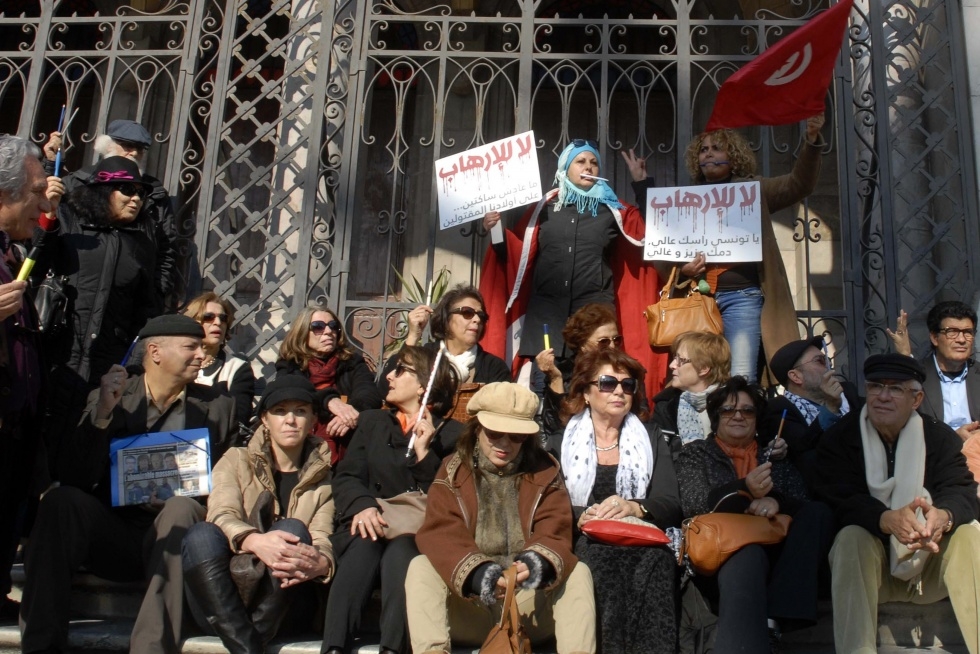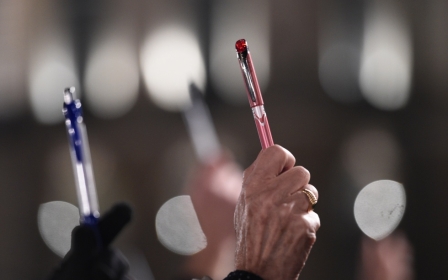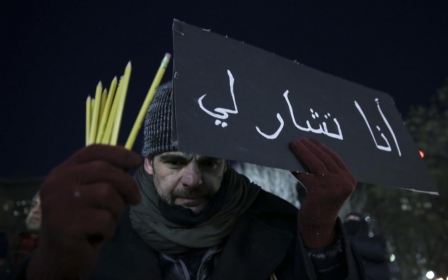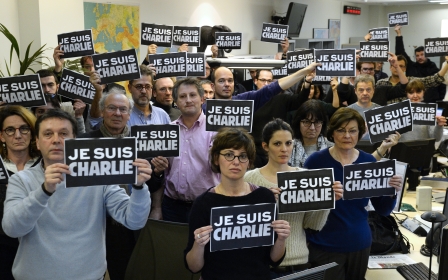Mideast media fear growing Islamophobia after Paris attack

Newspapers in the Middle East warned Thursday that the attack on French satirical magazine Charlie Hebdo could trigger a backlash against the West's Muslims.
"Muslims will find themselves in a fix because extremist groups in Europe will exploit this incident to fuel Islamophobia," said the Saudi newspaper Al-Sharq.
Qatari newspaper Al-Sharq denounced "extremists who pretended to avenge the Prophet Mohammed" because of those cartoons, and urged a "serious dialogue between East and West to tackle extremism."
Middle East newspaper expressed shock and indignation at the attack on Charlie Hebdo that left 12 people dead, describing it as an act of "terrorism".
But in Israel, Sever Plocker wrote in the Yedioth Aharonoth newspaper that it would be a mistake to treat the incident as an attack on freedom of the press.
"This is a war of civilisations and not just another intimidation campaign by a gang."
North African press
Tunisia's Assabah newspaper said "terrorism butchers freedom of expression and stabs Islam".
Tunisian newspaper El Watan said Muslims of France and other Western nations could be the target of hate crimes like those that followed the September 11, 2001 attacks on the United States.
"All eyes will be on the Muslim communities of France and most of the Western world," it said.
Prosecutors in France reported that Muslim places of worship in two French towns were fired upon overnight after Wednesday's carnage in Paris.
"Terrorism has no religion," said the front-page headline of Morocco's Arab-language newspaper Ahdath Al-Maghribiya. "It is a crime that kills us all and that cannot be justified."
Morocco's flagship French-language weekly magazine TelQuel denounced the attack and voiced its "shock and indignation."
TelQuel also re-published a 2012 interview it conducted with Stephane Charbonnier, Charlie Hebdo's slain editor-in-chief, in which he said: "I am an atheist, not an Islamophobe."
Lebanese press
Newspapers in Lebanon mourned the Charlie Hebdo cartoonists killed in Wednesday's attack.
Lebanon's French-language L'Orient-Le Jour newspaper published an editorial entitled "I am Charlie" and denounced "perverse acts aimed at radicalising the most moderate".
Pro-Syrian government daily Al-Akhbar dedicated five pages to the Paris tragedy, including profiles of the slain cartoonists.
Leftist newspaper As-Safir, known for its criticism of the West and its policies, warned that "lone wolves" and "Qaeda-type sleeper cells (in Paris) may have awoken".
The killings have been condemned by governments across the region.
Iranian press
In Iran, newspapers linked the attack to French support for Syria's armed opposition and its participation in the war on the Islamic State group.
The papers, however, did not mention how Iran's former supreme leader, Ayatollah Khomeini, issued a fatwa in 1989 against Salman Rushdie, a British author of Indian origin, for his book The Satanic Verses, saying it was against Islam, the Prophet and the Quran.
Khomeini had called on Muslims to murder the award-winning author and anyone involved in the publication of his work.
A decade later, Iran's foreign minister said his country no longer threatened Rushdie's life or encouraged others to kill him.
The reformist newspaper Ebtekar said the rise of IS "which appears to be the result of the military actions of Western governments in Islamic countries, has given birth to the bloodiest terrorist operations."
The reformist Shargh newspaper said it was possible that cartoons of the Prophet Mohammed published by Charlie Hebdo in 2006, which triggered violent protests in Muslim countries, "can give an excuse for terrorists to carry out horrific acts on the behalf of Islam".
Turkey against radicalism and Islamophobia
However, despite fears of a backlash targeting Western Muslims, Turkish Prime Minister Ahmet Davutoglu has called on “Muslim Turks” to hold their heads high if they face any radical and Islamophobic reaction.
"It is high time for us as Muslim Turks to walk with our heads held high against all radicalism and rising Islamophobic attacks," Davutoglu said on Thursday.
"All of us must tell our Muslim-Turkish identity without any hesitation," he said.
The premier noted that the perpetrators of the deadly attack and those who escalated tensions between peoples "both lived on the same resource."
"Whatever powers are behind this assault, they have exerted an effort to sow seeds of a new cultural conflict," he added.
New MEE newsletter: Jerusalem Dispatch
Sign up to get the latest insights and analysis on Israel-Palestine, alongside Turkey Unpacked and other MEE newsletters
Middle East Eye delivers independent and unrivalled coverage and analysis of the Middle East, North Africa and beyond. To learn more about republishing this content and the associated fees, please fill out this form. More about MEE can be found here.




